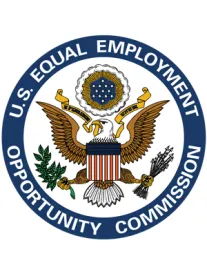Amidst sweeping calls for racial justice and equality, the U.S. Equal Employment Opportunity Commission (EEOC) has unveiled a new webpage regarding Commissioner charges and directed investigations.
Although the EEOC does not mention the calls for racial justice after the killing of George Floyd, it is likely not a coincidence the EEOC is highlighting these investigative tools that are particularly nimble for investigating systemic discrimination.
Commissioner charges allow for investigations of potential discrimination under Title VII of the Civil Rights Act, the American with Disabilities Act (ADA), and Genetic Information Nondiscrimination Act (GINA). Directed investigations allow for investigations of potential discrimination under the Age Discrimination in Employment Act (ADEA) and the Equal Pay Act (EPA).
How a Commissioner Charge is Initiated
The investigation of a Commissioner charge requires the authorization and signature of a Commissioner. Commissioners have discretion regarding which investigations are to proceed. There are various ways the potential investigation by a Commissioner can reach a Commissioner’s desk.
The EEOC allows any person or organization to provide an EEOC field office with “any pertinent information.” 29 C.F.R. § 1601.6(a). The EEOC field office can request issuance of a Commissioner charge for inquiries that relate to individual or systemic discrimination. A Commissioner also may file a charge without receiving a referral from a field office.
The charge must be in writing, signed, and verifiable. The charge must meet certain elements and include the respondent’s name, address, and approximate number of employees, if known, as well as a “clear and concise statement of the facts, including pertinent dates, constituting the alleged unlawful employment practices.” 29 C.F.R. § 1601.12(a)(2)-(4). Further, the EEOC will inform the state or local fair employment practices agency if the charge is within the jurisdiction of the local agency and provides for an enforcement mechanism
Situations Leading to a Commissioner Charge
The EEOC states that Commissioner charges can happen in three ways:
-
A field office learns about possible discrimination even though they have not received an individual charge. The EEOC states that it can learn such information through direct observation, local community leaders, advocacy groups, state agencies, and other federal agencies (such as the Department of Justice or the Department of Labor).
-
A field office learns about new allegations in the course of investigating an existing charge and is unable to expand the existing charge. The EEOC provides a hypothetical example of an investigation in one location that leads to discovery of a company-wide policy that affects employees in separate offices.
-
A Commissioner generally learns about discrimination in the workplace and asks a field office to investigate the allegations.
How a Commissioner Charge is Investigated
The investigation of a Commissioner charge is similar to how investigations are conducted for other charges. The EEOC serves its notice upon the respondent and proceeds to gather information directly or through a state or local employment agency. This normally consists of the respondent providing a position statement with supporting documentary evidence. The EEOC also can seek to issue subpoena that require the testimony of witnesses or production of further evidence.
Directed Investigations
Directed investigations require less red-tape than a Commissioner charge, since a directed investigation can be initiated by a District Director – no approval of a Commissioner is needed. EEOC field offices can investigate claims relating to the ADEA and EPA independently. The investigation would proceed in the same manner as other charges brought by the EEOC. Directed investigations often involve ADEA advertising issues or EPA investigations from current employees who would prefer their name not be revealed to the company.
Implications for Employers
A Commissioner charge may become a lawsuit filed by EEOC. From data provided by the EEOC, the EEOC has filed a total of nine lawsuits stemming from Commissioner charges from 2015 to 2019 – an average of two lawsuits per year.
The driving force of Commissioner charges is the ability to enforce an EEOC subpoena for documents and data by a court. Before 1972, Congress required the EEOC to have a “reasonable cause” to believe a violation of Title VII has occurred. That requirement has since been removed. A Commissioner can file charges even if no information is provided by a field office. Nonetheless, different courts have responded differently to a subpoena provided by an EEOC. Any charge brought by the EEOC should be analyzed on a case-by-case basis, but it is also important to understand the tendencies of the federal circuit the Commissioner charge is brought before.




 />i
/>i
